Wrestling games occupy a unique space in the video game world. Some classify them as fighting games, and others think of them as sports games. And who’s to say who’s correct? This isn’t the tired “is wrestling a sport?” debate, because of course in order to be a great wrestler you have to be a tremendous athlete.
That doesn’t change the fact that wrestling match outcomes are predetermined. But inside the video game world, the matches are presented as legitimate competitions where you are trying to win an actual fight. Sure, some recent releases have started to implement match ratings or fan reactions as another measuring stick for success, but the ultimate goal has always been to win the match.
In the real world, however, a wrestler’s job is not to beat opponents so severely that they cannot answer a three count. Rather, it’s to put on an entertaining match that engages the fans and achieves the creative team’s vision for that match and how it fits in with the rest of the show. But how does that translate to video games? So far, it hasn’t. The focus in video games has always been on winning the match.
We watch wrestling because we want to see great matches, yes, but we also want compelling storylines. Some of the most fun you can have as a wrestling fan is playing fantasy booker. WWE 2K has tried to some extent to achieve this through Universe mode, which is still focused more on the in-ring product. You do get to play a booker of sorts, but what, exactly, is the point of Universe mode?
You can create rivalries that you can then let play out over a few weeks or months. But again, why? You can do that outside of Universe mode just fine. Where is the measuring stick for success? My issue with Universe mode is it attempts to build an entire house, but leaves the job site as soon as the framework is done. Sure, I can see what you’re trying to do here, but can we continue on and finish the job?
What if instead, similar to how NBA 2K has MyLeague and MyGM, WWE had Universe (MyLeague) and their own version of MyGM? One where you don’t see the ring at all because the focus is strictly on the backstage decisions you make as lead booker.
Your New Job
Instead of controlling a wrestler, you are a fast-rising voice on the creative team. Due to a family dispute, Triple H, Stephanie and Shane have left to create a rival promotion. As a result, Vince has given you total creative control over all of WWE.
But first, some bad news.
Due to some issues with the previous regime, contracts lapsed on several WWE superstars. Those superstars are now with this new promotion for one year. This extreme loss of talent leads Vince to shut down NXT, leaving you with simply Raw and SmackDown. In this new wrestling world landscape, your goal is to fend off this new promotion by maintaining high television ratings, keeping fans engaged with the product, and of course maintaining a high locker room morale.
As the lead booker in WWE, you are responsible for the entire locker room and booking feuds/storylines that play out on Raw, Smackdown, monthly PPV events and live event house shows. Each wrestler will receive dynamic ratings on based on his or her wrestling ability, promo ability, fan engagement, locker room standing, relationship with you, and finally relationship with Vince. These ratings are dynamic and will change over time. You’ll also see the names of any wrestlers with which they are feuding or aligned.
Ultimately, your job is to keep your boss, Vince McMahon, happy. How happy he is will be based on his own personal opinion, but he will also take the following into account: WWE fan engagement as well as locker room morale, all three of which will be rated dynamically. Additionally, you have to keep an eye on live event attendance as well as television and PPV ratings. Lastly, don’t make the same mistake the previous regime did by losing popular wrestlers when their contracts expire. Losing a poorly rated wrestler might not be the worst thing, but if you lose a lot of them, or even just one really popular wrestler, Vince might put you on notice.
Basically, the challenge for you is to keep everyone as happy as possible: Vince, the locker room, and of course, the fans. The fans may respond to something that Vince hates. Do you chance it in hopes that Vince eventually comes around to see it the fans’ way? It’s up to you to find the magic recipe for success.
How It Would Work: Promos, Matches And Feuds
Feuds are the heart of what you do. Sure, you can book two tremendous wrestlers in matches all the time, and that would be enough to appeal to a small, yet passionate section of your fan base. Truly great, memorable feuds contain several defining moments that span multiple matches over multiple months. These moments don’t always come from matches, but also from promos, backstage segments, and in-ring interference or run-ins.
When you book a match, you of course book the winner, whether it’s by pinfall, submission or DQ. But instead of simply choosing the winner, you assign a percentage split for how each wrestler performs.
Let’s say you schedule a Seth Rollins vs. Kevin Owens match, and you book Owens to win by pinfall with a split of 51/49. You are basically booking the match to be as close and competitive as possible, where Owens is technically the winner but Rollins does not look weak at all in defeat. If you were to instead book it 99/1, that would lead to a quick Owens squash match where Rollins gets buried. It’s up to you as the booker to look at the match participants to determine the right outcome. You can’t book all squash matches or all competitive matches and expect to have long-term success. Variety is key.
But that’s not all. Along with the winner and the percentage, you can also set goals for the match. The goal can simply be to put on a good match or you can assign multiple goals. Using the above example, let’s say you have Rollins and Owens just starting a feud. A good way to start would be to book the match 60/40 in favor of Owens, yet you have Rollins actually win the match via interference from Buddy Murphy, followed by a post-match beat down. The goal here, of course, would be to ignite the Rollins/Owens feud and to get a lesser-known wrestler, Murphy, more over with the fans.
Promos are very straightforward — you book one and set a goal, whether it’s to get a wrestler or a feud over with the fans. The focus in this mode isn’t on the promos themselves because I think most fans would agree that any recent attempt by 2K to include line-by-line promos in their games has been underwhelming at best. With this new mode, you would only be concerned with who is cutting the promo and what their goal is with said promo.
Each and every match, promo and feud is rated in three categories: fan reaction, locker room reaction and boss (Vince) reaction. Promo and match ratings are obviously final, but feud ratings are dynamic for as long as the feud continues. So if you book a match in order to further a current storyline, how well that match is rated will also affect how that feud is rated.
The easiest way to book a successful feud is to take two popular wrestlers and book them for a three-month feud where they trade PPV wins the first two months, followed by a blow-off third match where one of the participants emerges victorious. Regardless of the feud length, the key is variety. For feuds on the shorter side, as in three months or less, you want to make sure you don’t book the participants in too many matches. Using the three-month feud as an example, three PPV singles matches and maybe one more on TV would be sufficient. Anything more would be overkill. Ideally, three would be the limit with some multi-person tag matches mixed in to help keep things fresh.
For feuds that stretch into half or whole year territory, you want to make sure you pepper in some breaks. You can’t have the wrestlers interact every week on television — that would cause any feud would eventually grow stale. Make sure you keep tabs on the status of the feud. It’s natural for fans to become less engaged as you take a break for a few weeks or even months. But if you see fan engagement drop to almost zero, it’s time to try and re-spark the feud. It’s all about balance.
At the conclusion of each feud, final ratings are issued, and as a result, each wrestler in the feud will see a change as well. If you book the feud right, both wrestlers will improve after the feud. If you made some mistakes along the way, maybe only one of the wrestlers improves. Or worse, maybe both regress. It’s up to you.
It’s Not Just About The Stars
Your goal as booker, however, is not simply to book successful feuds. It’s also to help lesser known wrestlers get over. Angel Garza is a great recent example of this. His wrestling ability has always been sky high, but up until his run on Raw, his fan engagement rating would’ve been really low. But now that he’s been on television consistently with some prominent names, he’s receiving a lot more buzz.
You would also be able to do this with MyGM. For example, take a wrestler with low crowd engagement and give them a quick two-month feud with a really popular wrestler. Would this lesser known wrestler be helped more with a shocking upset win over a big name or by a hard-fought, back-and-forth loss? That’s up to you to figure out.
Patience Is Key
You also have to be careful how you book TV shows, PPVs and house shows. If you give away a bunch of great matches and payoff matches to big feuds on television, you’ll see TV ratings increase while PPV buys decrease. And if you use house shows only as boring filler during the week, you’ll notice a sharp decline in house show attendance.
House shows are important because, as lead booker, you can’t have every member of your roster booked in a feud or even on television each week. But if you let wrestlers go too long without a feud or any meaningful television or even house show time, their ratings will decline, their mood will sour, and they will think about leaving at the end of their contract. Even if you don’t have a spot near the top for them, keep them in the public eye with matches on house shows and television.
Another way to use house shows would be as a trial run for television and PPV. Let’s say you have two wrestlers with which you want to start a feud, but you’re not sure if they’ll have any chemistry in the ring. Try out the match on a house show. If it rates well, you might have something. If the crowd rejects it, it might be time to re-think your plans.
Keeping Things Fresh
You also have to be smart in how you book your matches and your feuds. There’s the obvious, like resisting the urge to have five cage matches in a month or turning a particular wrestler face for the seventh time in two years. And the less obvious, like if you have someone with a good wrestler rating only wrestle against those with poor wrestling ability, their in-ring rating will eventually dip, so you’ll want to get them back in the ring with someone on their level. And while you certainly can luck out every once in a while by having an unknown with no fan engagement score an upset win against a main event guy, you might just turn fans against this new wrestler while you both lose respect in the locker room.
For example, if during your first month on the job you approach Brock Lesnar with the idea that he drop the title to Humberto Carillo, you can expect zero respect from Brock for a long time, possibly until his contract expires and he leaves WWE. If you wait for a couple of months to build up some respect with the locker room, wrestlers are more likely to at least listen your unconventional ideas, which will open up more opportunities for you as the booker. And as you build up that respect, word will spread beyond the locker room and you might be able to convince wrestlers to sign with WWE once their contracts with the rival promotion expire.
The wrestlers will also come to you with suggestions for storylines. How you handle those suggestions will affect how each wrestler, as well as the collective locker room, feels about you. A good way to improve your standing with wrestlers is to either agree to their suggestion or politely suggest an alternative. If Cedric Alexander comes to you demanding a run with the IC title, maybe you simply acknowledge his frustration with the lack of TV time and agree to use him more on house shows and television. He won’t be as happy as he would have had you just agreed, but he’ll respect you for working with him.
Conclusion
As it exists today, Universe mode feels flat. With a little tweaking from the 2K team, there’s still a place for the mode, which focuses on wins and losses like we’re used to with wrestling games. But with the success of games like Out of the Park and modes like NBA 2K’s MyLeague, it’s time for 2K to work on a mode that really gives gamers control of all booking decisions. With the amount of fantasy booking done by wrestling fans on social media and message boards, it would be a sure-fire hit from day one.
What about you? Would you have any interest in a true GM mode for WWE 2K? What sorts of things would you like to see implemented? Let us know in the comments below.



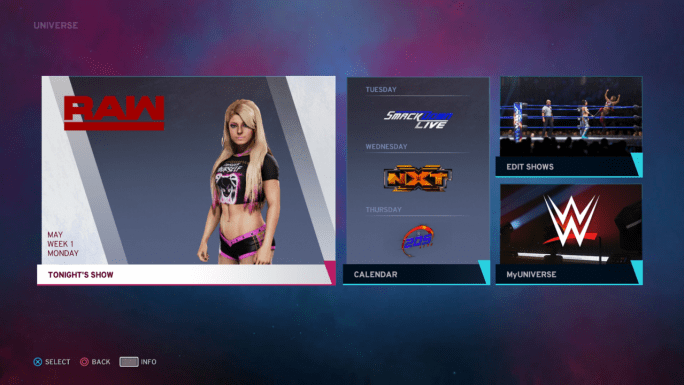
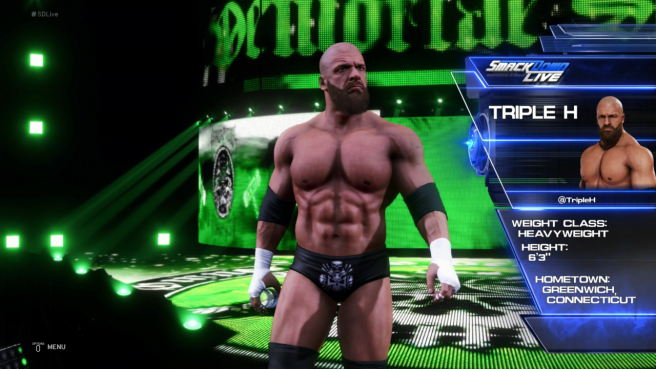
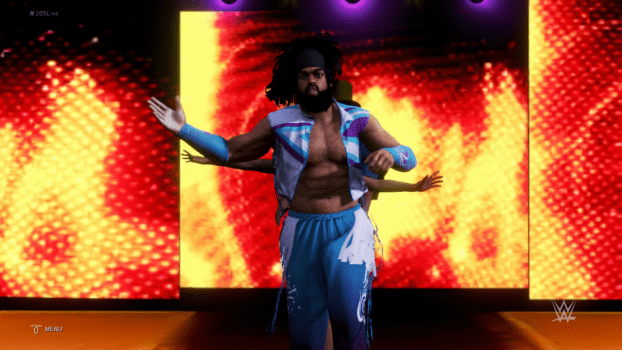
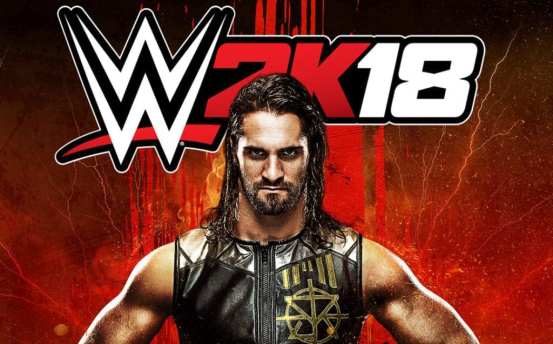
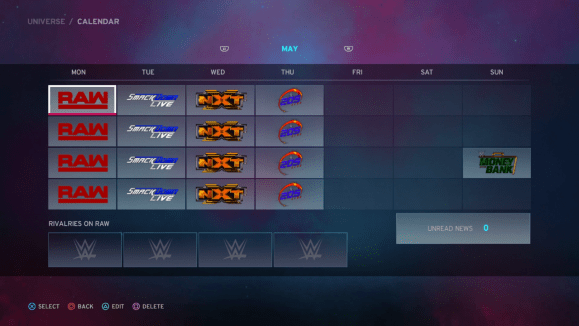
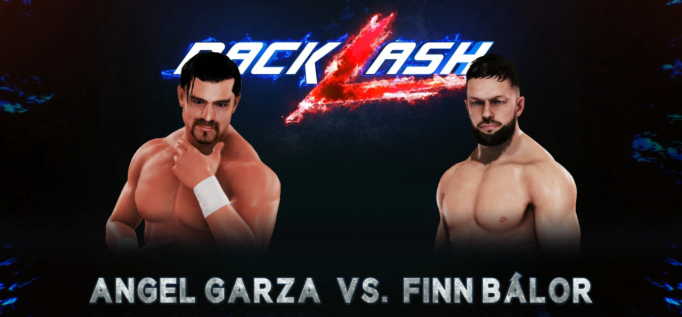
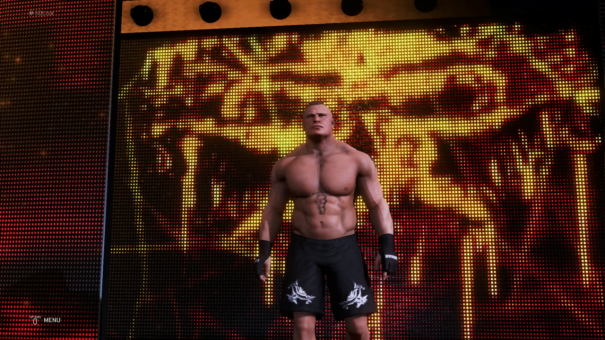





Published: Mar 7, 2020 12:00 pm